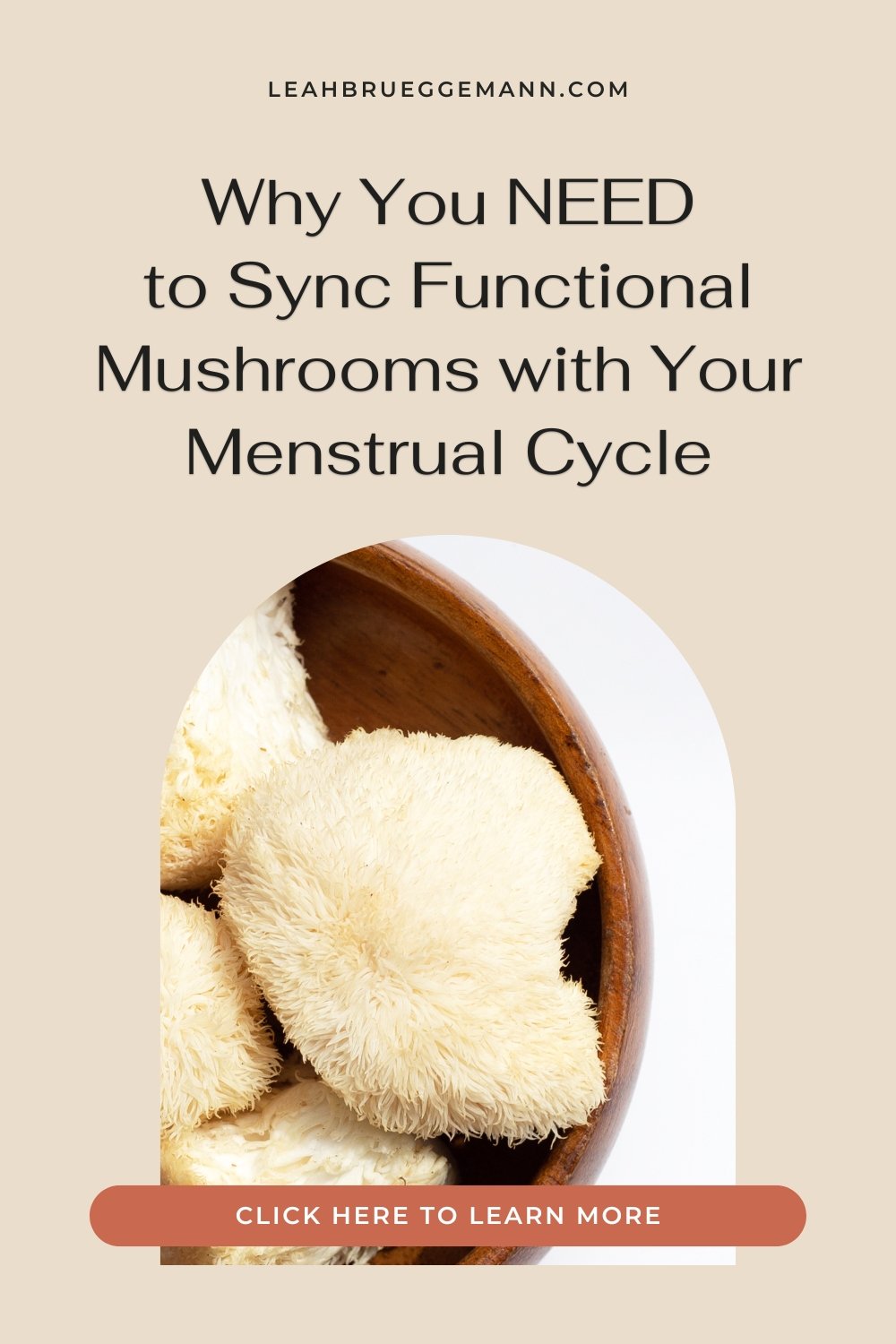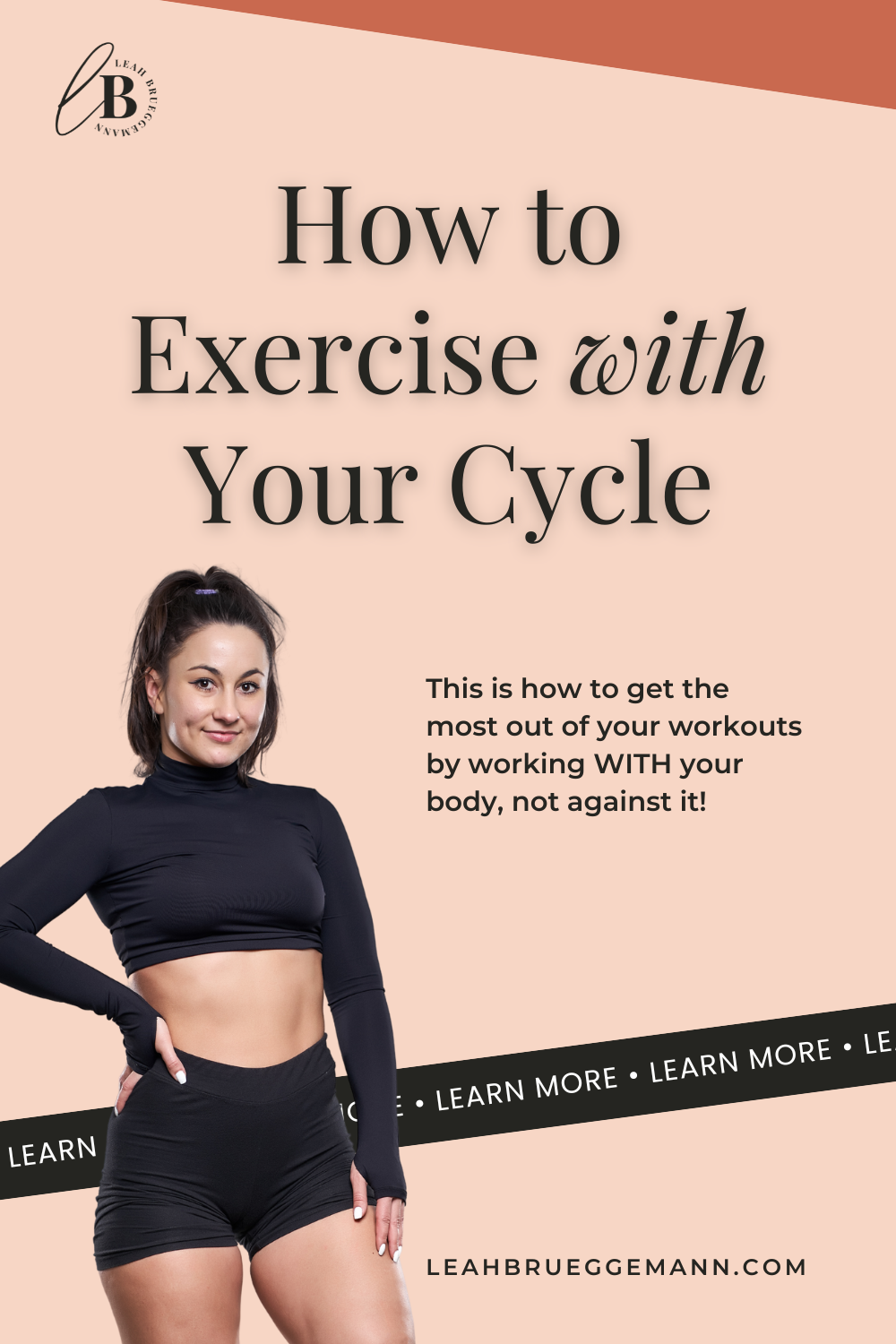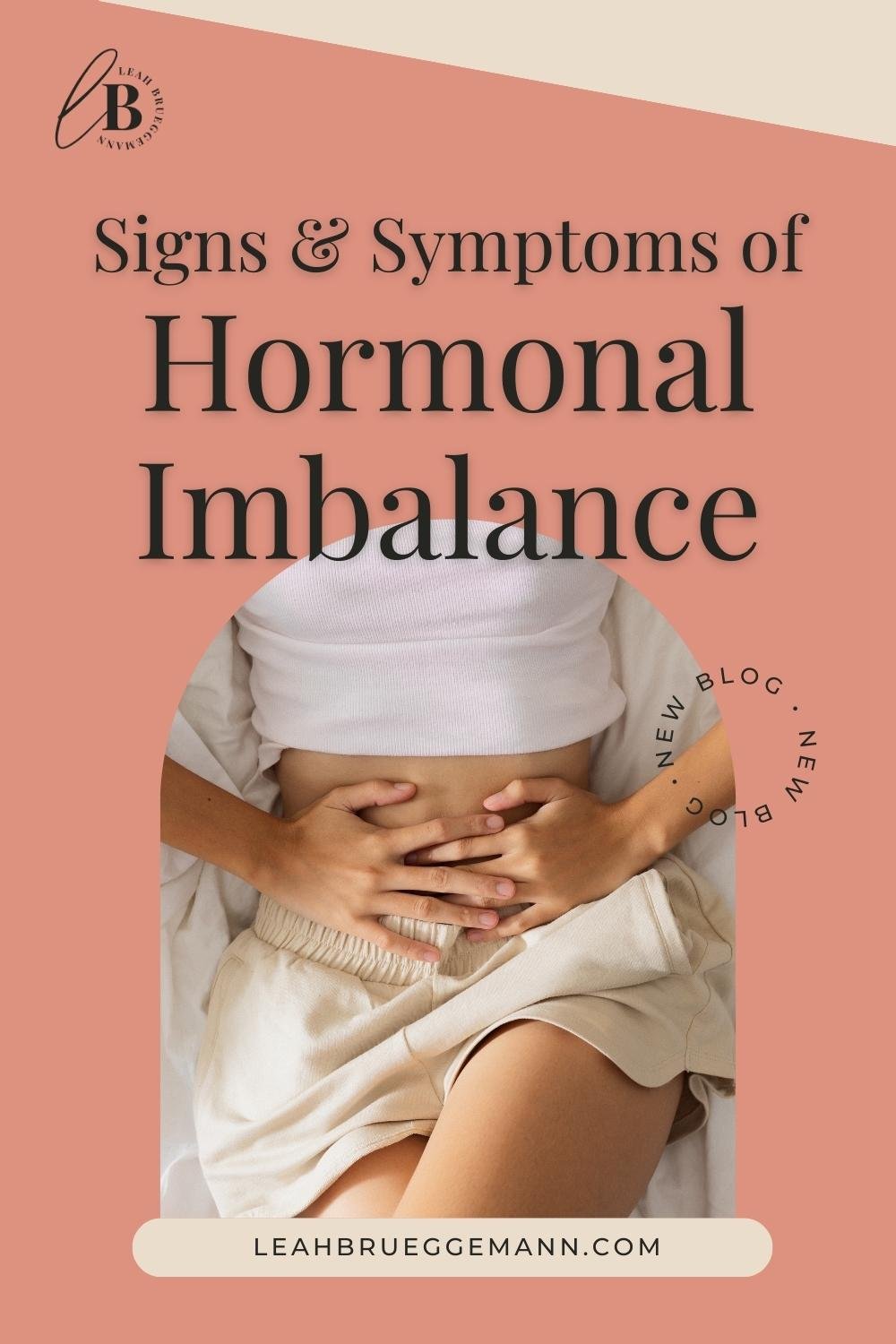Period missing but not pregnant? This is what to do next!
If your period has gone AWOL but you know you’re not pregnant, it can feel really frustrating and worrisome! Let’s explore how to figure out what’s going on in your body so that you can regain control of your cycle.
First of all, I just wanna start with a reminder that ovulation is what causes your period. If you aren’t ovulating, you aren’t going to have a period. And if you’re trying to get pregnant this is going to be really good to keep in mind.
It's heart-wrenching to witness women who are eagerly trying to conceive, yet their periods are nowhere to be found, and they keep subjecting themselves to the emotional turmoil of taking pregnancy tests that inevitably show up negative. It's like a recurring cycle of hope and disappointment, and it truly tugs at my heartstrings.
But again: If you're not ovulating, pregnancy is simply not on the table. It's as straightforward as that. And this is why I'm diving into this topic today – to clear the fog of confusion and give you a roadmap for what to do when your period isn’t showing up on time or at all.
Start with tracking your ovulation.
Trust me when I say this, knowing when your body is releasing that egg is like having the ultimate insider information. It's like having a crystal ball that can tell you the most fertile window in your cycle. Why is this important? Because it eliminates the need for those countless pregnancy tests that only serve to amplify your stress and heartache. By focusing on tracking your ovulation, you’re taking back control of knowing what’s going on inside your body!
Think about it this way – ovulation is the key to conception. If you don't know what’s going on with ovulation, no amount of wishing or hoping will make pregnancy happen. Ovulation is the magical moment when your body says, "Hey, I'm ready to make a baby!" And if you're not in tune with your ovulation, it’s like running through a maze with a blindfold on.
Our bodies are so smart – they know when they're ready to take on the task of creating a new life. So, by zeroing in on your ovulation window, you're basically honing in on your body's secret language.
And guess what? By doing this, you're not just gaining insight into when your body is primed for conception – you're also reclaiming your emotional well-being. Instead of waiting and hoping for a pregnancy test to tell you what’s going on, you now know exactly when your body is naturally ready for the possibility of conceiving.
Are you over-exercising or under-eating or both?
Your body is smart. It equates ovulation with pregnancy. And even though your ovulation affects so much more than just pregnancy, if your body thinks you don't have enough nutrients to support growing a baby, it won’t ovulate. Or if it thinks you’re running from a predator for hours each day it will assume you’re under too much stress to be pregnant. And the best way your body knows to prevent pregnancy is to suppress ovulation.
Speaking of stress…
You can eat all the right foods. You can take all the right supplements. But if you do not manage your stress, you will NEVER balance your hormones. I know that is such a hard thing to equate because we just want to take a pill, right? We just want to take the supplement and get on with it. Sadly, it just doesn't work that way. You need to manage your stress. Stress can delay ovulation and suppress ovulation because your body doesn’t think you can support a pregnancy right now. So start managing stress and removing stress from your life if you want to regulate your hormones.
What kind of testing you should consider.
Certainly, when your menstrual cycle shows signs of irregularity or is absent altogether, advocating for your health involves taking specific steps to uncover underlying factors. By proactively engaging with your healthcare provider and requesting targeted tests, you can gain valuable insights into potential issues affecting your menstrual cycle.
Unfortunately, our current medical system isn’t very well equipped to provide this type of care just yet. Doctors often won’t offer this kind of testing unless you ask for it, so it’s up to us to learn about our bodies and our cycles and educate ourselves about these systems so we can work with our doctors to get the testing and care we need.
First, I recommend asking your doctor for thyroid testing.
Hypothyroidism can suppress ovulation so that’s a great first place to check. Thyroid hormones affect so many different parts of your body including metabolism, energy regulation, heart rate, body temperature, and of course these can all impact your menstrual cycle. So ask for a full thyroid panel, not just TSH but the full panel so you can get a comprehensive idea of what’s going on.
Next, check on your sex hormones and insulin levels.
It's also a great idea to have a chat with your doctor about checking your hormone levels, specifically looking into testosterone and sex hormone-binding globulin. This kind of testing gives you a better grasp of how your body is handling testosterone.
You might also want to discuss a fasting plasma glucose test with your doctor. This test checks your blood sugar levels after you've gone without eating for about eight hours. Another option is the oral glucose tolerance test. This one involves doing the fasting glucose test and then drinking a sugary solution. After you've had the solution, they'll draw more blood two hours later. This test gives you an average of your blood sugar levels over the last couple of months. It's a great way to see how things are going with your blood sugar and whether there's any hint of insulin resistance which can impact your ovulation as well.
These are the initial tests I recommend. They're like the building blocks to understanding your overall health, helping you get a clearer picture of how your body manages blood sugar, keeps hormones in check, and whether there are any insulin-related concerns. These tests are basically your health detective toolkit!
What if my doctor won’t run those tests?
Sigh. This is all too common. It’s just metabolic testing so it shouldn’t be a huge battle to get these run, but doctors are primarily trained to treat symptoms using medication. They aren’t really in the same headspace of trying to track down the underlying issue so we can make lifestyle changes to help heal ourselves. This just isn’t the business of health care right now. It’s sad but true. If your doctor says no – or worse, offers to put you on the pill to “regulate” your hormones – here’s what I recommend.
First of all, birth control is made of synthetic hormones. These are endocrine disruptors. So how doctors can offer an endocrine disruptor to balance hormones is beyond me. But more importantly, birth control prevents you from ovulating. And remember, ovulation is what triggers your period and is the golden ticket if you’re trying to get pregnant!
And I know some of you who are (or have been) on birth control are saying, “But Leah, I have a regular period while on birth control!” What you experience while on the pill is a withdrawal bleed. This happens because you’ve stopped certain hormones that trigger menstruation. But since this is happening only because of the pill, you haven’t actually fixed the problem that is preventing you from ovulating.
So, if your doctor recommends birth control instead of testing, politely decline and let them know you’d like to determine if you have a thyroid issue or insulin resistance, and if they still say no…
Very politely – politely is key here – say thank you but let them know that with the symptoms you’re experiencing, you’d like to dig deeper to understand the root of the issue. Then ask them to please note in your chart that you asked for these tests, but were denied so you can have a record. Many times this will convince your doctor to run the tests, but if it doesn’t, you are more than within your rights to find a new doctor who is able and willing to provide the kind of care you want.
What you can do in the meantime to support ovulation.
We’re back to our foundations. So at the beginning of this post, we talked about over-exercising, under-eating, and stress. We know we need to manage these to help our bodies understand that we’re in a good, safe place that can support pregnancy. So, here are a few additional ways you can support healthy ovulation:
Balance Your Blood Sugar
In addition to that, one of the most important and easiest things you can do to support ovulation is balance your blood sugar. When we eat, we absorb sugars that our body needs to process. But if we get spikes of sugar because of the types of foods we’re eating our body produces insulin to help process the excess sugar. But this extra insulin can get in the way of our normal hormone processing and suppress ovulation. So it’s so, so, so important to understand and balance your blood sugar.
Thankfully, this doesn’t involve cutting out entire food groups, going on any fad diets, or anything like that. There are no “good” or “bad” foods. Foods do not have moral value. We eat them for various reasons and sometimes that reason is simply for the joy of eating them. And that’s good and important in a healthy lifestyle.
Overall, what we’re looking for is eating mostly veggies, a good amount of protein, and some carbs and fats. And the order in which we eat these foods can actually help our body absorb and process them better. Eat veggies first, then protein and fats, then lastly, carbs and sugars (including fruit!). I could go on and on about balancing blood sugar because it is such a simple task that has such a huge impact.
Another super easy way to balance your blood sugar and in turn, help balance your hormones, is to eat breakfast before you drink coffee in the morning. This stabilizes your cortisol levels so that you can start the day with balanced blood sugar.
You can learn more about balancing your blood sugar here and here.
Start Seed Cycling
In addition to making sure you’re eating enough and balancing your blood sugar, you can start seed cycling to help get your cycle back in sync. Learn all about seed cycling and where to get the best seeds here.
Support Your Adrenals
We also want to support your adrenals. I love a good adrenal cocktail of orange juice (5 oz), full-fat coconut milk (1 oz), cream of tartar (1 tsp), and sea salt (¼ tsp). I love using Redman’s Celtic sea salt for this. You can add a scoop of collagen peptides too to get a bit more protein. Such a great way to nourish your adrenal glands if they’re being overtaxed by stress.
Improve Your Sleeping Habits
We also want to make sure we're getting enough quality sleep. The less sleep you get, the more susceptible to stress you are. And lack of sleep can also lead to food cravings. Both of these lead to increased levels of cortisol which can lead to hormone imbalances and, you guessed it, suppressed ovulation.
You should be aiming for seven to eight hours of quality sleep. We want to have a gentle, relaxing bedtime routine. And we want to avoid using screens before bed (bonus points if you put your phone in a different room while you sleep!). Check out my podcast episode on nighttime routines to figure out how to best support yourself and your hormones through good, quality sleep.
Find a doctor or practitioner who supports your health goals.
It’s important to find a doctor or practitioner who not only understands your goals, but fully supports your health journey. You don’t have the time or the ability to change someone into the type of practitioner you need them to be so instead, use your energy to work on your health and find someone whose values and goals align with your own.
For example, one of my strong beliefs is that women need bioavailable nutrients from animal sources. So if someone comes to me and says they want to work with me, but they’re vegan, I know I’m not a good fit for them. What I think they need won’t align with their values. So be sure to understand what you want and take the time to find someone who is able and willing to work in the same space.
Your menstrual cycle is a holistic system that reflects your inner balance.
When your period shows up like clockwork, it's a testament to your body's health. It's like a thumbs-up from your reproductive system, indicating that everything is ticking along smoothly. And it’s not only about the health of your reproductive hormones, but it gives insight into your overall health, including things like stress hormones, thyroid hormones, and blood sugar levels.
Remember, everyone’s journey is unique. There is no one-size-fits-all solution. This is why I so strongly encourage you to learn about your own cycle! If your period is missing, but you’re not pregnant, understanding your cycle and tracking ovulation is the only way to truly understand what’s going on and what to do next to support your body.
Embrace the process, advocate for yourself, and partner with a practitioner who understands your needs. Period problems are like puzzle pieces – once you find the right fit, everything starts falling into place!
Learn more about using nutrition to regulate your periods inside the FREE Painless Period Prep Guide!
The recommendations presented in this blog are not a substitute for medical advice from a qualified doctor. Before making any changes to your diet and lifestyle, please consult with your health care provider.
Some of these links contain affiliate links.





